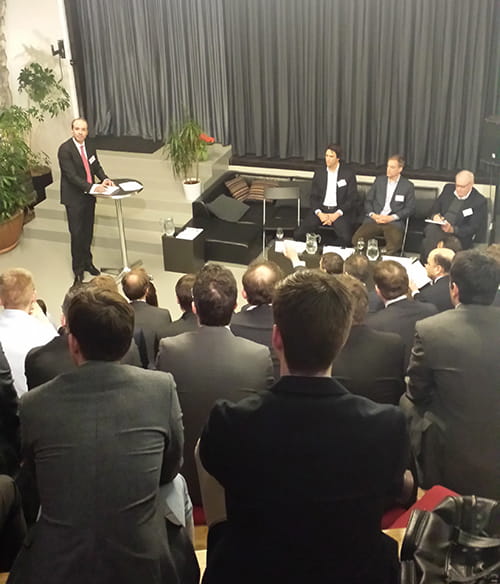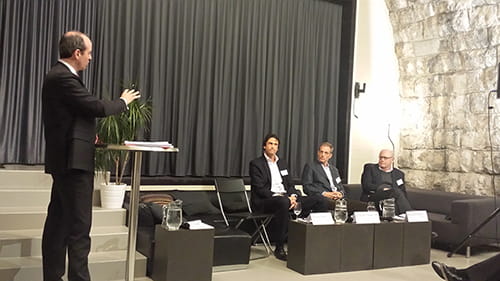Chicago Conversations: Talking Impact Investing in Zurich
March 24, 2015
Impact investments, or capital invested with the aim of generating both an
economic return and social benefit, are predicted to total nearly $1 trillion by the end of this decade. But with results that can be difficult to quantify and track records still being built, the impact investing industry remains a work in progress.
On March 12, Chicago Booth's Career Services department and the Social Enterprise Initiative hosted a Chicago Conversations event on the future of impact investing. Booth alumni, seasoned investors, and policy makers gathered at Zürich's Impact Hub business incubator to discuss trends and opportunities in the space.
Here's some of what they had to share.
Patrick Elmer, Head of Philanthropy and Responsible Investments, Switzerland, Credit Suisse
Quote:
“While impact investing is still in its early days, it attracts more
and more interest from various stakeholders—as shown by the growing
asset base. The combination of sound financial returns, low correlation
with traditional asset classes, and positive impact on society is of
course a compelling proposition to many investors.”
Richard Marney, Head of Risk Management, responsAbility Investments AG
Quote: “Our industry’s challenges are two-fold: first, to balance sustainable investment theses for both the investor and investee sides; and second, to evolve the business focus and investment practices to enhance continuously the catalytic and additive impact of our intervention.”

Gregory Lindae, '12 (XP-81), Senior Investment Officer, Private Equity, FMO Dutch Entrepreneurial Development Ban
"I believe an underlying theme in this investment space is the strong heterogeneous view on how to approach its execution, measure it, and what to expect in return. It is important to be aware that the achievement of positive development or impact needs to be analyzed in the context of geography, as one can see very distinct styles of investment in emerging markets versus countries in the Organisation for Economic Co-operation and Development (OECD).
As long as the pricing of externalities is challenging and thus businesses seek to profit from this market inefficiency, impact investing will always be somewhat concessionary in developed (OECD) economies regarding returns, because often the positive investment filter used will produce an opportunity set of companies that seek to internalize what their competitors do not. In emerging markets, often this is not the case and instead the concessionary aspect of impact investing is from taking on too much risk, which is reflected in the fact that the investments are invariably additional, i.e., providing capital to companies where commercial capital is not available. This implies that commercial players deem the risk to not be adequately rewarded."

Harald Walkate, '01, Senior Vice President of Strategy and New Business Initiatives and Head of Responsible Investment, Aegon Asset Management
"It was clear from the questions and contributions coming from the audience that finance professionals are increasingly drawn to impact investment, and are looking for relevant knowledge, insights, and career opportunities. As a Booth alumnus, I'm therefore proud to know that the Social Enterprise Institute is contributing to the further development of the sector, in terms of professional opportunities and academic inquiry."
Learn more about this event and find out about upcoming Chicago Conversations »